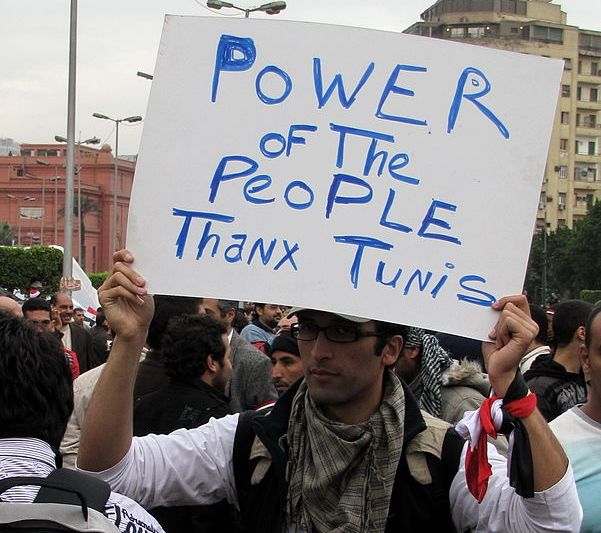Neue Proteste in Tunesien zehn Jahre nach dem Sturz Ben Alis

In Tunesien wächst zehn Jahre nach dem Sturz der Ben Ali Diktatur der Unmut über Korruption, mangelnden ökonomischen Fortschritt und ein reformunfähiges politisches Establishment.
Aus Tnis berichtet Elizia Volkmann für Al-Monitor:
Jan. 14, 2021, should have been filled with the joyful celebrations of 10 years of democracy following the 2011 popular Jasmine Revolution that ousted President Zine Abedine Ben Ali. Instead, politicians currently in power who benefited from the revolution face the same anger and unrest from the children of that very revolution.
Winter is Tunisia’s traditional season of discontent. As 2021 began, the country was in an ugly mood. The Tunisian economy had shrunk by 9% in 2020, some industries such as tourism have been all but destroyed, while people have had to endure strict enforcement of curfews under the COVID-19 restrictions, rising food costs and unemployment.
In what was seen as a peremptory move to prevent demonstrations, Tunisia’s Health Minister Fouzi Mehdi announced a four-day lockdown on the pretext of COVID-19 sanitary restrictions starting Jan. 14, effectively canceling the 10th anniversary celebrations of Tunisia’s popular revolution.
Determined to demonstrate on Jan. 14, the wounded martyrs of the revolution were not fazed by the lockdown. The families of activists who lost their lives at the hands of the police during the 2011 revolution have been campaigning for the publication of an official and definitive list of revolutionary martyrs and for their deaths to be acknowledged by the state. However, when they arrived at the central avenue of Habib Bourguiba, they were forced back by police.
The lockdown left youths in the poor neighborhoods in Tunis discontent. Youths from marginalized neighborhoods such as Ettadhamen and Kabaria set tires on fire in the streets and went to war against the police. Night after night, youths have been setting the streets alight, looting supermarkets and fighting with the police. The police replied with beatings, tear gas and mass arrests.
Romdhane Ben Amor of the Tunisian Forum for Social and Economic Rights told Al-Monitor there are no exact figures even on the Ministry of Interior website, but “the estimation is that there have been around 1,300 to 1,400 arrests of which some 30% to 35% are minors.” He said, “There are the testimonies from the young people who have been freed that they have been detained alongside adults and [experienced] aggressions and threats from guards.”
Protests since then have split between daytime protests by self-identified political activists, who are mostly middle class and demand a fundamental systemic change. Among them are new movements of young people inspired by the Antifa movements they’ve seen on the news. Tech-savvy, they call themselves The Wrong Generation and are developing new ways to be heard peacefully, yet still — like the ultra-violent nighttime youth in deprived neighborhoods — The Wrong Generation is being chased by police and their allies and arrested and detained for days in appalling conditions.
Nighttime protestor and activist Oussema Dhari, from the marginalized suburb of Raoued in Tunis, told Al-Monitor, “People from the ordinary ‘hoods’ and the Ultras have a real hatred of the police; we are angry and we want our revenge, and we don’t want anything in return.” He said they prefer to protest in their neighborhoods because “it’s their safe zone, where they have an advantage over the police.” He says the lockdowns have had a detrimental effect on society. “Our daily rhythm has been ruptured, even sitting in a cafe is impossible now. I don’t feel like a citizen now.”
A 17-year-old skateboarder from Denden suburb in Tunis told Al-Monitor, “The 15- to 19-year-olds are stigmatized by the way we dress. When we walk in the streets the police always hassle us, saying ‘Who are you? Where are you going?'" He said skaters, in particular, suffer: “They (the police) broke my first board and they tried to knock people off their skateboards.”
Political reactions have been mixed. President Kais Saied tried to calm the nation by appealing to the people not to go out at night or damage property. But members of the government have chosen to provoke fear in the public's mind, with Defense Minister Brahim Bartagi warning of terrorist elements among the night protestors and Prime Minister Hichem Mechichi vowing to deploy security forces in the neighborhoods.